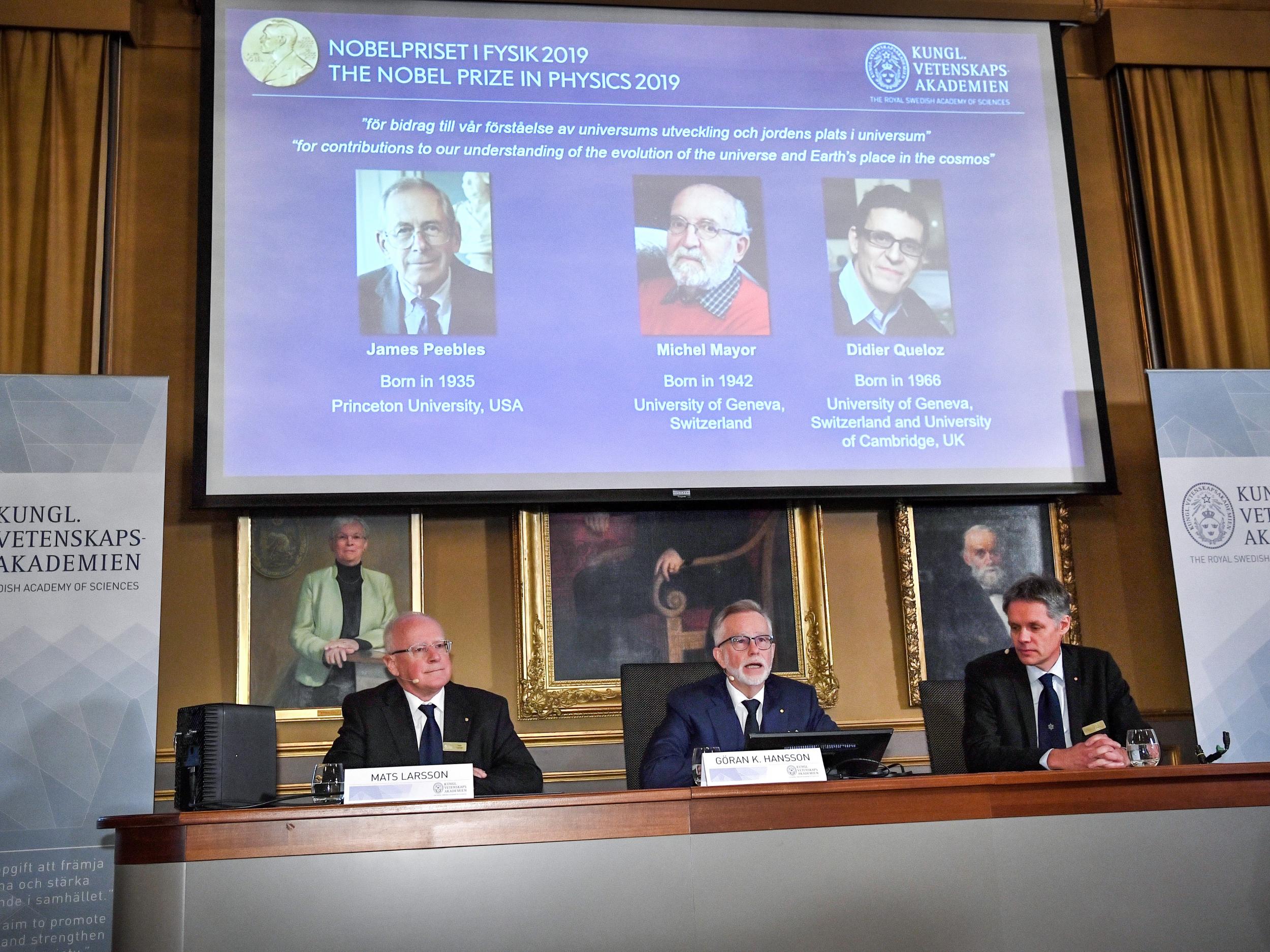Nobel Prize in Physics awarded to trio for ‘groundbreaking discoveries’ about the universe
Scientists won 2019 prize for contributions to the understanding of our place in the cosmos
The 2019 Nobel Prize in Physics has been won by James Peebles, Michel Mayor and Didier Queloz.
The scientists won for “contributions to our understanding of the evolution of the universe and Earth’s place in the cosmos”, which the Nobel Committee described as “groundbreaking discoveries”.
The announcement was made at the Royal Swedish Academy of Sciences on Tuesday morning, with the winners of the prestigious prize awarded a share of the nine million Swedish kroner (£750,000) prize money.
“This year’s Laureates have contributed to answering fundamental questions about our existence,” the Nobel Committee stated. “This year’s Nobel Prize in Physics rewards new understanding of the universe’s structure and history, and the first discovery of a planet orbiting a solar-type star outside our solar system.”
One half of the prize goes to Professor Peebles for “theoretical discoveries in physical cosmology” and the other half is jointly awarded to Michel Mayor and Didier Queloz for the discovery of an exoplanet.
Recent winners of the Nobel Prize in Physics include Peter Higgs and Francois Englert for their discovery of the Higgs boson particle, and researchers at Laser Interferometer Gravitational-Wave Observatory (Ligo) for detecting gravitational waves.
Last year’s winner was Arthur Ashkin, who at 96 was the oldest Laureate since the awards began in 1901. Only three women have ever been awarded the physics prize, the equivalent of one every 60 years.

It is the second Nobel Prize winner to be revealed this year, after British scientist Sir Peter Ratcliffe and US scientists William Kaelin and Gregg Semenza were jointly awarded the Nobel Prize in Physiology or Medicine.
The trio of scientists were awarded for their discoveries of “how cells sense and adapt to oxygen and availability”, which is one of the most fundamental processes for sustaining human life.
Winners of the Nobel Prizes for Chemistry, Literature, Peace and Economic Sciences are set to be announced over the next seven days.
Greta Thunberg is one of the favourites for the 2019 Nobel Peace Prize, which will be unveiled on Friday. The teen activist has gained international recognition for campaigning against climate change.
Join our commenting forum
Join thought-provoking conversations, follow other Independent readers and see their replies
Comments
Bookmark popover
Removed from bookmarks